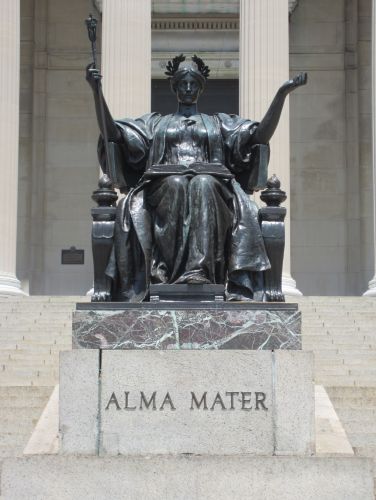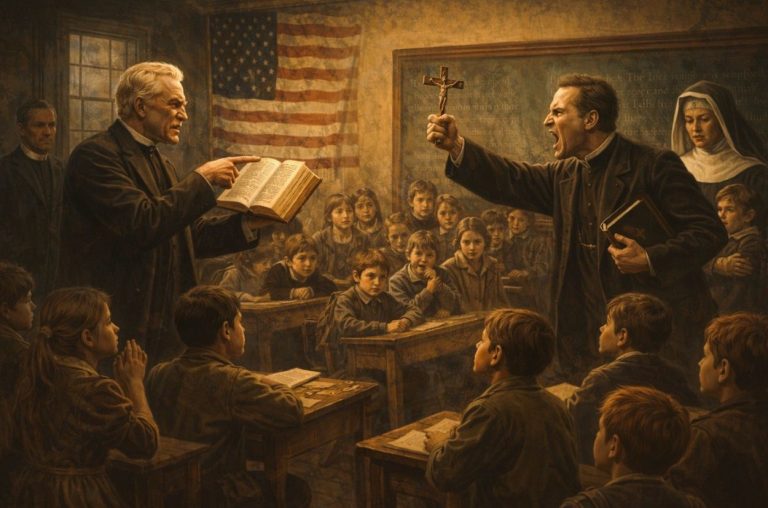

By speaking now, before repression hardens, they hope to inspire others, not only academics but all citizens, to see the stakes of the present moment more clearly.

By Matthew A. McIntosh
Public Historian
Brewminate
An Unprecedented Declaration
More than 400 scholars, including several Nobel laureates, have signed an open manifesto warning of democratic backsliding across the globe, with the United States as one of its focal points. The document, recently circulated through major newspapers and academic networks, positions itself not as an ideological screed but as a sober diagnosis from the intellectual community.
Its tone is measured, yet the urgency is unmistakable. The signatories warn of authoritarian tendencies that are not confined to the ballot box or the halls of government. They point instead to creeping shifts in cultural norms, institutional practices, and the very conditions under which public debate takes place. The manifesto argues that academic freedom and civil society have become frontlines in the broader struggle over democracy itself.
Symbols and Subtle Signals
Scholars also flagged the optics of a full‑dress military parade in Washington on June 14, 2025, the Army’s 250th birthday coinciding with Trump’s birthday, including ceremonies on or near sites central to the Jan. 6 insurrection.
History shows that authoritarianism rarely arrives through sudden coups alone. It advances through symbols and cultural reorientations, the slow repurposing of civic rituals, and the weaponization of public memory. To scholars of history, these are familiar signs of what happens when institutions no longer act as brakes but as accelerants.
The Fragile Position of Academia
The manifesto is especially concerned with the condition of universities. Academic institutions, once considered bastions of free thought, are increasingly under pressure from political actors demanding loyalty tests, compliance with ideological agendas, and restrictions on curricula.
Universities in the United States have already witnessed campaigns to suppress discussions of race, gender, and climate change. Faculty face intimidation, not only from local activists but also from lawmakers who threaten funding. Students find themselves navigating campus environments where political speech can be policed by outside interest groups. The manifesto places these developments within a larger pattern: when academic independence is curtailed, democracy itself weakens.
Historical Precedents in Europe
The scholars behind the manifesto are acutely aware that this is not the first time intellectual life has been targeted. In Europe during the 1930s, academics who resisted fascist regimes were silenced, exiled, or worse. Universities that once boasted some of the world’s leading thinkers either succumbed to the demands of authoritarian rulers or lost their most talented faculty to purges.
The Nazi regime understood that controlling universities meant controlling the production of knowledge and therefore the political imagination of future generations. Italian fascism carried out similar interventions, restructuring academic institutions to serve state propaganda. These historical analogies are not invoked lightly. They remind us that authoritarianism does not only ban books or close presses; it reshapes the very machinery of thought.
Latin American Echoes: Intellectual Resistance Under Dictatorships
The resonance of this manifesto is not limited to Europe or the United States. Latin America offers its own history of intellectual defiance under authoritarian regimes, where scholars and artists often carried the burden of resistance when other institutions were silenced.
In Chile during Augusto Pinochet’s dictatorship, universities became both targets and refuges. Faculty were purged, students disappeared, and entire departments deemed politically suspect were dismantled. Yet underground networks of academics preserved critical inquiry, sometimes through clandestine seminars or through exile. Chilean intellectuals abroad (Mexico, Spain, and the United States) published essays and organized conferences that kept alive an international awareness of the repression at home.
Argentina’s “Dirty War” produced similar dynamics. Between 1976 and 1983, the junta not only targeted political dissidents but systematically attacked intellectuals, writers, and university students. The forced disappearances of thousands, many of them from academic circles, left scars that continue to shape Argentine cultural memory. In exile, figures such as the philosopher José Pablo Feinmann and other intellectuals sought to frame the violence not simply as political repression but as a broader assault on the capacity of a society to think, debate, and remember.
These examples echo the current concerns voiced in the manifesto. Authoritarian regimes often understand that controlling knowledge production is as vital as controlling armies or economies. To silence intellectual communities is to prevent a society from imagining alternatives.
The survival of Latin American intellectual traditions, despite decades of repression, also illustrates the resilience the current manifesto hopes to encourage. Just as Chilean and Argentine scholars found ways to keep the critical spirit alive in the darkest years, today’s academics argue that their duty is to anticipate repression before it hardens, to refuse complicity while there is still space to resist.
A Global Alarm, Not a Local One
What makes this manifesto different from earlier warnings is its global orientation. The signatories are not limited to American or European universities. They include scholars from Africa, Asia, and Latin America, emphasizing that the erosion of democracy is not confined to one hemisphere.
They point to global trends: restrictions on NGOs in Hungary and India, constraints on academic publishing in China, and the growing convergence of state power with nationalist rhetoric worldwide. The manifesto insists that these are not isolated stories but interconnected patterns that demand a coordinated response.
The Call to Responsibility
At its core, the manifesto is a call to responsibility. Scholars, it argues, cannot retreat into the safety of abstraction or technical specialization. They must use their credibility and their platforms to name the dangers that others might prefer to minimize.
The text also cautions against despair. Authoritarianism thrives when citizens feel powerless, when intellectuals self-censor, and when institutions normalize abnormal behavior. The purpose of the manifesto is to remind readers that resistance begins with recognition. To acknowledge the danger is to begin countering it.
A Measured but Urgent Appeal
In tone, the document is strikingly restrained. There are no apocalyptic predictions or rhetorical flourishes designed to shock. Instead, its power lies in its sobriety. By choosing caution and precision, the signatories align themselves with a tradition of intellectual resistance that seeks not to inflame but to clarify.
The scholars know that manifestos alone cannot halt authoritarianism. Yet they also know that silence is complicity. By speaking now, before repression hardens, they hope to inspire others, not only academics but all citizens, to see the stakes of the present moment more clearly.
Originally published by Brewminate, 08.28.2025, under the terms of a Creative Commons Attribution-NonCommercial-NoDerivatives 4.0 International license.


